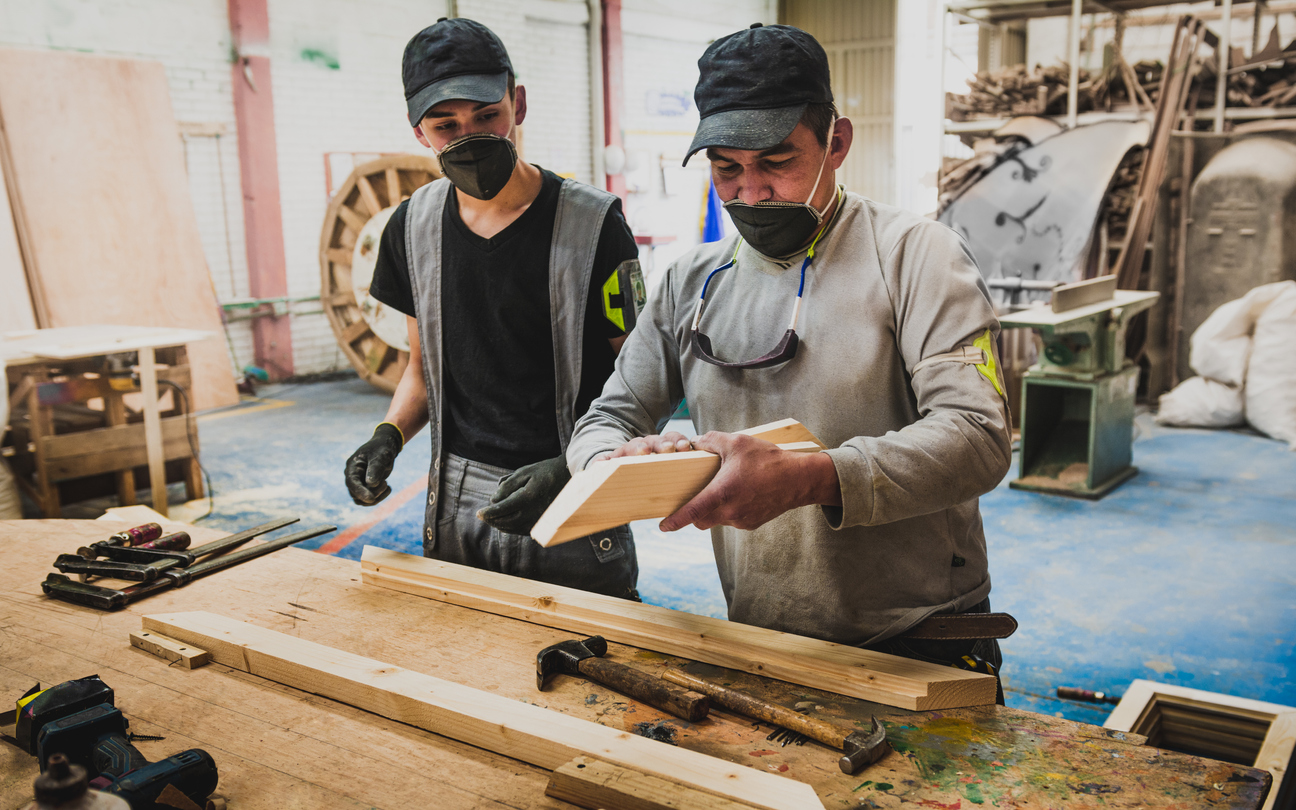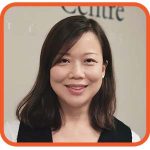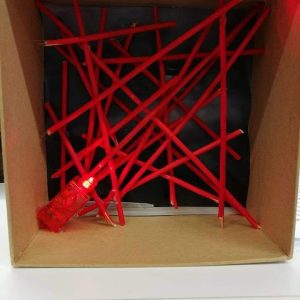
Social mentalities: A new approach to career mindsets
January 21, 2022
‘You didn’t just make pizzas!’ Resume writing and career mindsets for WIL students
January 21, 2022Much like in the creative process, having an open mind and embracing change can help illuminate the way forward
Wei Huang

However, the degree one holds is only one of many factors – such as interests, strengths, values, personal assets and work experiences – that shape one’s career. One of the greatest challenges for most undergraduate students is that most of these factors are subject to change. Amid students’ ongoing development, we might consider applying an artistic, creative mindset in our career planning approach, rather than taking a linear and static approach.
I was inspired by such a mindset when I was facilitating an art-learning career workshop. This is one of the sessions in the University of Toronto’s Dream Job Academy, a career-exploration program that uses arts, narrative and play-based activities. We asked students to create a diorama manifesting their dream careers.

Courtesy of Wei Huang
Having settled into work I enjoy as a career counsellor, it was hard for me to envision my own dream career. I started to play with the materials provided, picking up my favourite colour of sticks and randomly putting them together in the cardboard box. To accentuate them more, I made the background black. Then I was totally stuck, not knowing where I was going, so I took a step back to view it from a distance.
From that perspective, the layout of the red sticks looked like a multiple, non-linear career pathway. I thought that someone could easily get lost within the dark background, so I added a red light in the corner to illuminate the view. I suddenly realized that the red light resembled my role as a career counsellor. My current job could be my dream job if I took on the role of bringing light and hope to students rather than attempting to provide specific solutions to their career dilemmas. This is also reflected in the poem I wrote to go along with the diorama:
I hope to bring you the light
to reflect inside you a beautiful art
to reveal the prospects but no shortcuts
to shine the next step following your heart
When I reflected on this experience, I found that the process of creating this dream job vision is similar to the typical process of creating a piece of art. When we create an art piece, we may or may not have a goal. Either way, we can start with elements of colours, textures and shapes we like or think are important.
You do not have to know the destination if you follow your heart in each step; the journey will become clearer along the way. Sometimes, it is one step closer to our goal; other times, we get totally lost in the process. When we are lost, this is a good opportunity to pause, view things from a different angle and reflect. This can bring clarity to our next steps: maybe we need to change our goal, or maybe we just need to change our approach to it. Having an open mind, following our values, taking on different viewpoints and embracing change are the keys to an artistic mindset that one can apply to their career development.
More on creativity and career development from CERIC’s CareerWise
Using art in career exploration: 6 resources to check out
Using arts-based learning for career education
All I need to know about career development I learned in improv
Be open minded
It is important to have a goal, but it is more important to keep it somewhat tentative and have an open mind. Especially for those who have just entered university, it might seem beneficial to have a clear goal of a profession or career – to be a doctor, for instance – but it is also important to have parallel plans in case of change. A student’s interests might change after being exposed to more career possibilities, or their strengths may evolve after trying a new area of study.
“When we are lost, this is a good opportunity to pause, view things from a different angle and reflect.”
According to the University of Toronto’s 2020 graduate survey, 59% of students change their career goals during their undergraduate study; among those, 75% were due to a change in their areas of interest. To keep an open mind, it is valuable for students to reflect on why “doctor” in the first place. Is it about helping people? The prestige? Or is there another motivation? Figuring out the underlying reason behind a career goal can often lead to more options.
Follow your heart
Students often ask, “What career do you think is good for me?” It is a question for which I do not have a concrete answer, because people know themselves best and what is “good” for them. Therefore, I often start with asking students to define what is “good,” and the answers are very much based on the individual.
For some students, it is about stability in a career, while for others it is about enjoyment or achievement. Each individual should follow “what matters” to them, which is why values are one of the most important factors to consider in career choices. Follow your heart means follow what matters to you. If enjoyment matters more, a student may want to spend more time figuring out their interests; if financial rewards are a bigger priority, they may have to compromise on some of their interests. If you cannot have everything, it is about what matters to you more.
Take a different viewpoint
We often get lost in our own vision, because we only see it from our angle. Part of the beauty of art is that people see it differently from their own viewpoint, and there is no one standard or interpretation.
To apply this to career development, when a client is stuck in the process, career professionals can guide them to step back and view the situation from different angles. This might mean talking to different people to get their perspectives, especially with those who have been in similar situations. For example, instead of being stuck on the program name “philosophy,” students can reach out to alumni to get inspired by their diverse career pathways. At the same time, students can be introspective and reflect on: What influenced me to have this goal in the first place? Is the reason still applicable now? What is stopping me from moving forward? Is it an external challenge or an internal change?
Embrace changes
When it comes to the future, many changes are unpredictable. So, if uncertainty is the part of the future, why not approach it positively? One of the four paradoxes of positive uncertainty is “Be aware of and wary about what you know.” This is especially important for those who cannot make a decision because of lack of information. The reality is that most information is limited, incomplete or misleading based on different agendas and perspectives. One just needs to accept that no information is accurate all the time. The best pathway is to follow current clues (interests, strengths and values) to experiment and make the best decision at the time, and embrace change when it comes.
In summary, by having an artistic mindset to deal with ever-changing internal and external worlds; by having a focus but being flexible with their plan; and by welcoming the surprises and changes through following their heart, students can find their dream career along the way.
Wei Huang is a Career Educator and Career Counsellor at the University of Toronto. She assists students in building their self-directed career management skills and future career stories through experiential learning programs and one-on-one and group career sessions. Previously, she worked in the non-profit sector for over 10 years in various career and employment counselling roles.

